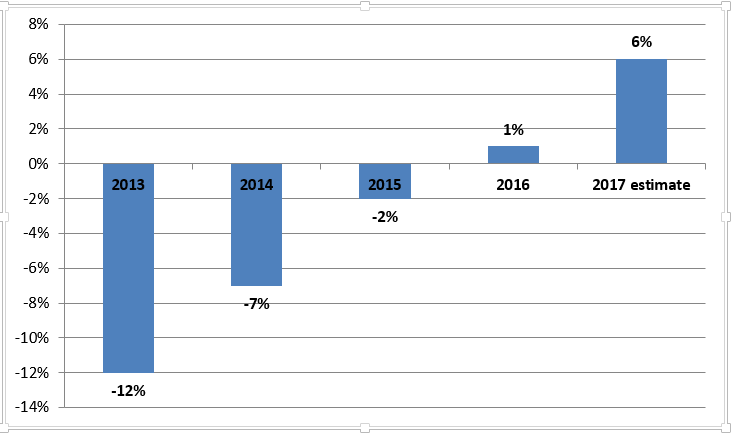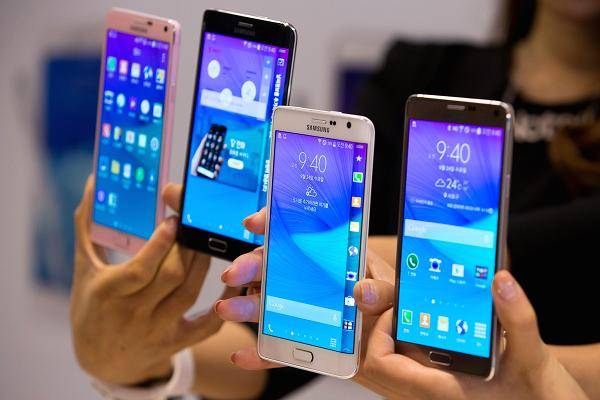The market is in competition and producing high priced cell phones has become a part of it, I guess. You might have come across the market value of top tier smartphones namely Apple’s iPhone X and Samsung’s Galaxy Note 8 having the price tags of nearly $1000. The inflationary trends in the cell phone industry are making consumers’ heads and wallets twirling. However, a million dollar question is that, are these innovative premium flagships worthy enough to have the $1000 price tag.
According to GfK, a research firm that collects customer checkout data, the average smartphone sale price is increasing. And the price hike is around 7 percent in the 3rd quarter of 2017 as compared to the 3rd quarter of 2016. North America witnessed 1 percent increase in the average sales price as compared to the Central and Eastern Europe where the average sales price has hiked by 26 percent. Although the figures vary significantly from market to market but an evident fact is that consumers are buying more and more expensive smartphones than ever before.
Average Smartphone Sales Price Change Globally

Source: GfK
At first glance the figures seem surprising as the prices of consumer’ electronics usually decrease over time. You can get the idea from this simple example that more and more mid-rangers and budget smartphones are coming from Chinese manufacturers, then why the prices are still hiking? Why these affordable ‘workhorses’, doing almost 90 percent what the flagship smartphones do, aren’t they playing a role substantial enough to bring down the prices? The reasons are numerous, but I am explaining just the eminent ones stating why the price hike in cell phone industry is not fitting well into equation with those bold innovations.
First, charging $1000 or up for a gimmick flagship isn’t justified at all. There are plenty of mid-range phone companies including Xiaomi, Huawei, OnePlus, Vivo and others offering somehow same features, but they seldom surface in the headlines. These average mid rangers have basically everything that a smartphone can offer such as a nice camera, competitive battery capacity, good enough display, and powerful operating system, but are being sidelined as the market of premium flagships is going up.
Second, the one-upmanship attitude of the cell phone companies is largely driven by the never-ending brand war or more specifically the conventional Android-iOS conflict. Adoption of new technologies, using expensive and fancy materials, and design innovations are the forces driving the prices into an upward direction. The top tier global brands namely Apple, Samsung, Google, HTC and the likes are releasing new premium models with an incentive to drive their sales value. Putting crappy gimmicks to keep prices up is their style to have customers by the balls because important features are getting cheaper in price.
Third, the prices are rising because people continue to pay for the high prices. If people could educate themselves same as buying a car when market prices would be more competitive, the situation could be much different. The blind brand followership is the reason aiding the renowned manufacturers to keep the industry monopolised. We all want flagship devices, but an important question is do we really need them?
Forth, premium features are becoming more and more important as every customer wants dust and water protection, high resolution sound, best camera performance, bezel less design and biometric sensors. What is worth noticing is that all these improvements are natural. The bigger and faster cell phones are the need of the hour, but charging an arm and leg isn’t.
According to a forecast from zenith, a media measurement company, 66.5 percent, i.e. two third of the adults worldwide will own smartphones in the year 2018. Smartphone ownership growth rate is 10 percent this year and expected to grow 7 percent in the coming year. Moreover, with 94 percent of the adults having smartphones, Netherlands is expected to have the highest saturation of smartphones in 2018. Pakistan is expected to have the lowest access at 36 percent. However, with more and more of the world expected to buy new smartphones, manufacturers are keenly working to grab their attention with this flagship game.
There isn’t any harm acclaiming that innovations are crucial. The manufacturers have to keep offering more and more premium features in order to remain in the flagship race. We do know that it isn’t just the hardware, but the R&D, software development and ecosystem that add to the overall cost of premium smartphones. However, we are against the unjustified and unprecedented price hike or more precisely the ever-expanding price tags of the premium players where the quality is being judged through the lens of expensiveness. And the worst part is that cost effective smart phones offering quite decent features are facing the pressure of getting squeezed out of the market owing to the price wars. What happened with brands like Motorola and Sony, once leading the mobile market, is in front of everyone as they were thrown out of the market for not keeping pace in the premium curved industry.
Renowned mobile companies like Apple and Samsung must realise that charging high prices isn’t a factor that will secure their top position in the market for long time. LG, Huawei and the likes producing cost effective smartphones are striving their best to develop premium products. LG is working to improve its camera quality and also improving the audio crowed as a third party DAC is being included in its phones. While Huawei is also standing out as it is offering value, camera and other features with the mid-price tag. So, the manufacturers must realise that the key to attract customers is providing quality as charging fortune isn’t going to help the companies in the long run.
Apple and Samsung aren't the only ones keeping the prices high as Google and others are also positioned to offer premium features for quite high prices. In short, premium flagships are leading the industry and average smartphone prices are going up owing to the intrepid innovations by the big fish. Yes, we do have the option of alternatives with lesser price. But, it is up to us, the consumers that whether we'll go for the brands charging fortunes or will settle for the ones not as fancy as the premiums, but offer both quality and affordability.






